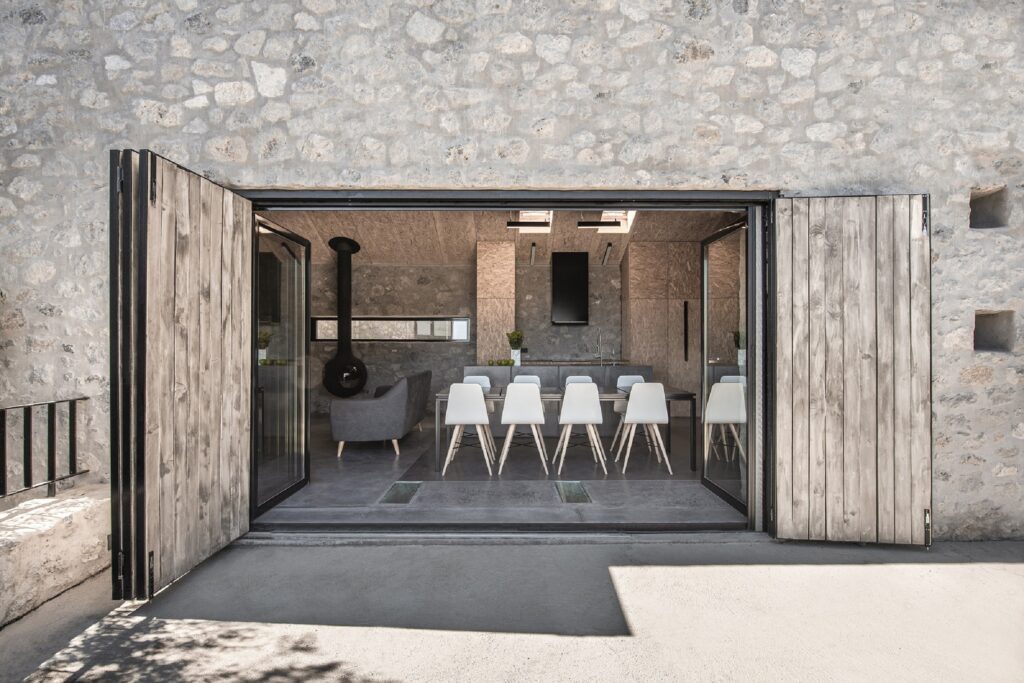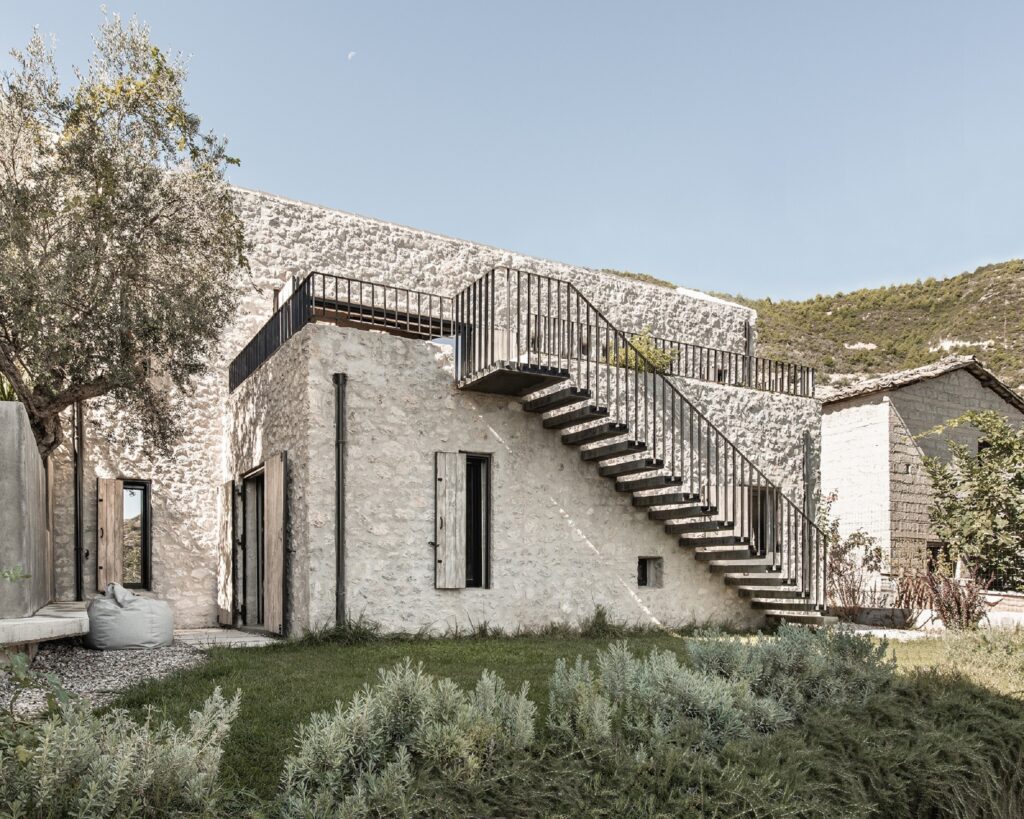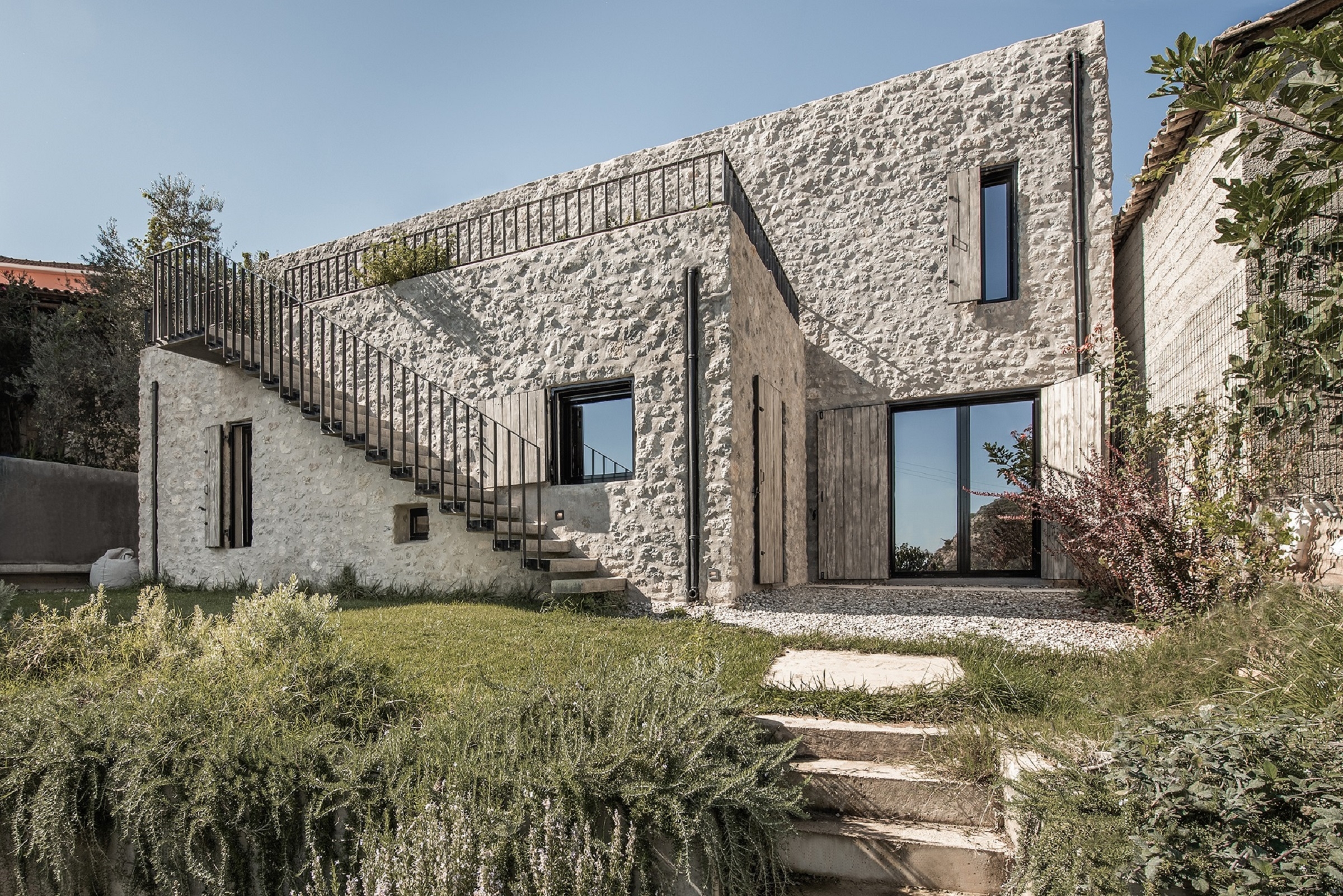Situated in the remote village of Kalamia, with an unobstructed view of the Gulf of Corinth, the Peloponnese Rural House is a setting for a family retreat. Developed according to contemporary sustainable standards, it has played a major role in the 2020 pandemic situation, thus providing its inhabitant both safety and comfort.
Some of the key sustainable features of the Peloponnese rural house have been accomplished by specifying craftsmanship and materials used located within a 100-mile radius of the construction site. The washed wood shutters were handmade from recycled wood and a black metal frame. An additional opening was also created on the roof in order to improve natural light and ventilation. It is important to emphasize that the entire 141m2 of habitable, custom-made space, was built with restricted means, without compromising the initial architectural proposal.

Thorough contextual and materiality research was conducted in order to incorporate a modern dwelling into the rural environment. A starting point of creative departure was the industrial feel of a traditional stone stable, characteristic of the Peloponnese rural areas, with its low, long, and tiled shed roof appearance.
The designer of this space is Ivana Lukovic. Born in Belgrade, Serbia, she has been living and working in Green since 1992. Since 1997 Lukovic has been running her own architectural and interior design practice. It is also engaged in experimental competition design.
Having in mind that the site has a slope with a six-meter height difference from top to bottom, the design studio raised a two-level construction in the garden. The morphology of the Peloponnese rural house has led to creating a humble appearance from the street side. The entrance level is approached by a ramp and it represents the communal space of the dwelling. It relates through the large openings to the outdoor observation platform, suitable for stars-gazing and experiencing distant views of the sea. Communication with the garden is established by a cantilevered, concrete staircase.

At the lower level, the slab’s perforations in the interior hallway create a cave-like atmosphere of a private area. Bedrooms and guest suites, along with bathrooms suggest the monastic feel of the space, thanks to the basic, bespoke furnishing.
The design of the house has won a number of awards since 2020 around the world. Amongst them, the Peloponnese rural house became the winner in the category of architectural design in the BLT Design Awards.









